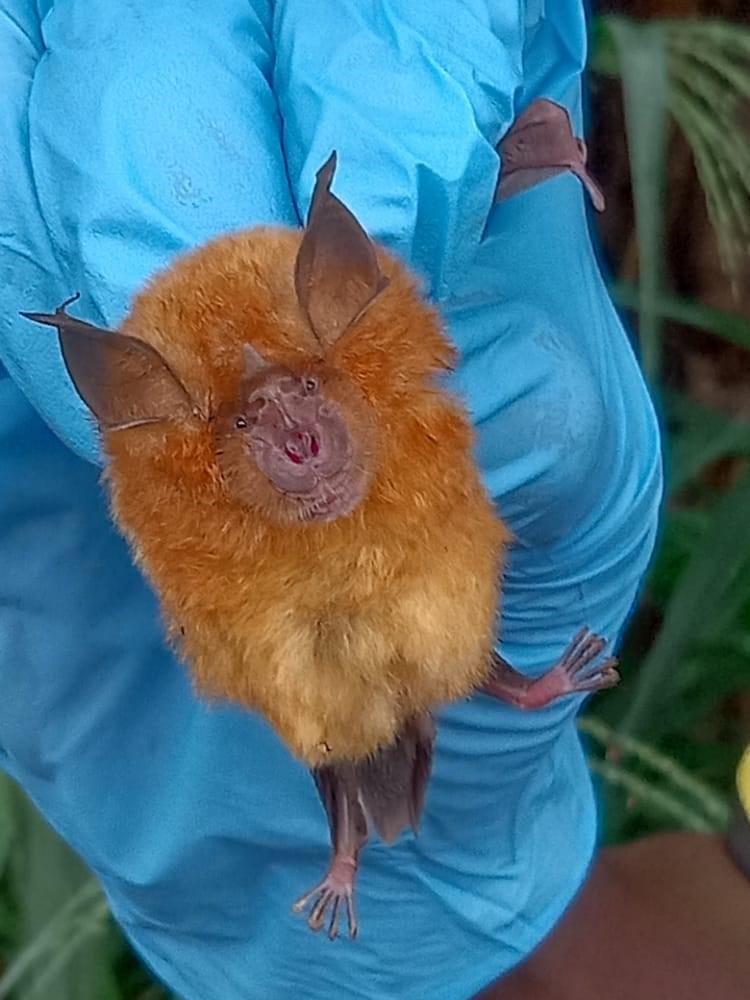Elijah Sunday Okwuonu
My project sites are caves in Enugu State, Southeast Nigeria. Most caves are used for tourism while some are hunted for bats. People from different walks of life visit the caves to see the beauty of life. Visiting tourists tend to go deep into bat roosting areas and agitate the bats with noise, and light pollution. The vegetation of this area is predominantly derived from savannah and secondary rainforest, a tropical climate with a mean daily temperature of 26.7°C. The months with the highest humidity point are between March and November. There are two noticeable seasons in this part of Nigeria, rainy and dry seasons. The mean annual rainfall is around 2,000 millimetres, which comes intermittently and becomes enormous during the rainy season. Like the rest of Nigeria, this region is hot all year round. Lands are owned by clans, which are divided into families involved. Most of the inhabitants practice subsistent cassava farming and hunting. According to Herkt et al.(2015), Southeast Nigeria is projected as part of the largest bat diversity hotspots in Africa. Although Southeast Nigeria is of significant conservation importance for bats, the area is poorly studied. The habitats in this study are sandstone caves. All caves in this study are large enough to accommodate humans. The scarp-lands of Southeast Nigeria have gullies, residual hills, dry valleys, erosional surfaces, and caves that culminate in a blend of spectacular landscapes that attract many students and tourists, but also the consequent anthropogenic disturbances.

Rhinolopus alcyone captured from Isiapi cave in Nsukka.
The aim of this project is to understand the impacts of the cave disturbance and environmental factors on bat diversity, and health (body condition, and parasite load), and employ this information in conservation messaging. The specific objectives are to:
1. Establish bat diversity in caves across Enugu State
2. Investigate the relationship between disturbance and environmental factors and indicators of bat health (body condition and parasite load).
3. Conduct evidence-based conservation outreach to train tour-guides and educate tourists.
I hypothesise that if cave tourism and hunting disturb bats, bat diversity should decrease where these activities are high. Similarly, if cave tourism and hunting impact the health condition of bats, then body conditions and parasites should show negative relationships with these activities. This project will contribute significantly to conservation science and practice by establishing the diversity of bats in Enugu State, Nigeria, and identifying roosts of data-deficient and threatened species if these occur in the study area.